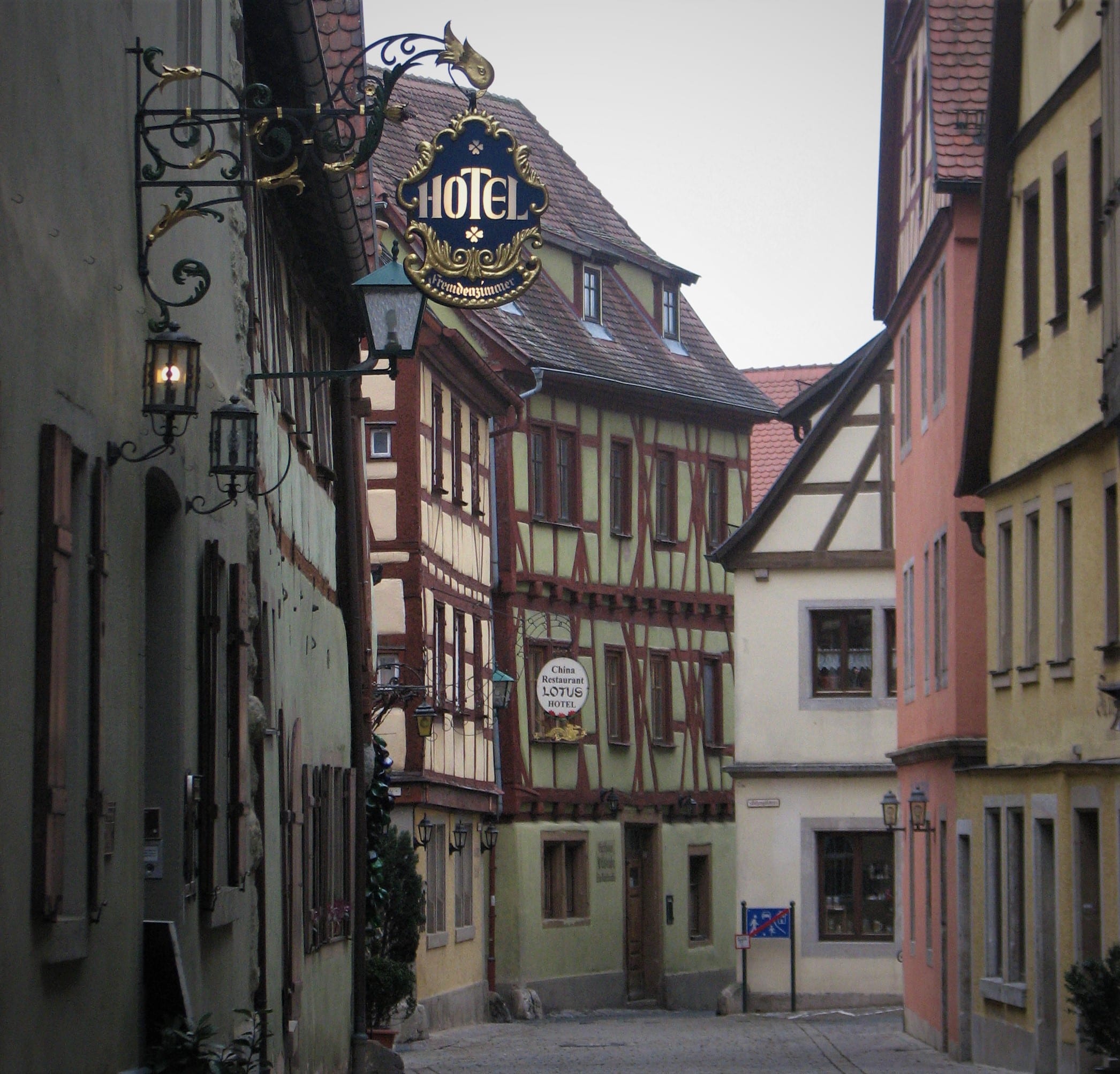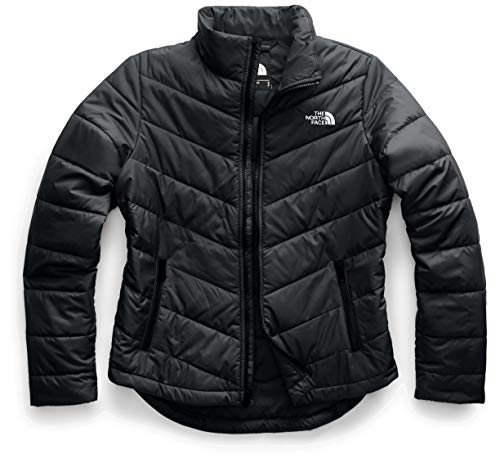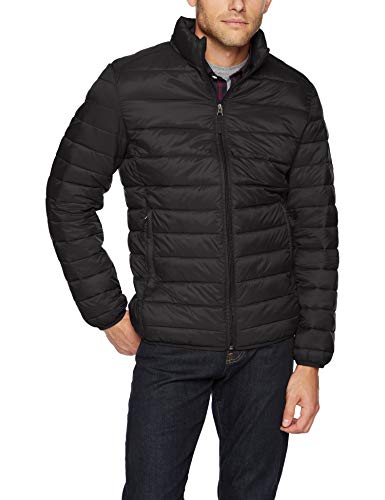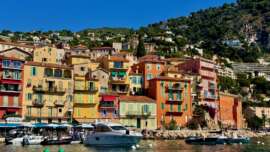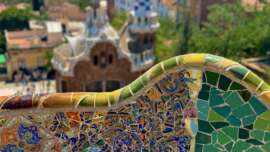Several years ago, I visited a friend stationed near Frankfurt, Germany. As part of our trip, we visited 3 medieval German Towns: Trier, Heidelberg, and Rothenburg ob der Tauber. These three towns exhibit a melting pot of history and architecture from ancient history, the middle ages, and modern history.
Disclaimer: This post may contain affiliate links so if you make a purchase or booking through one of our links we might earn a small commission (but don’t worry, it is no extra cost to you).
Trier
Located near the Luxembourg border, this medieval town was founded in the late 4th century BC. Three hundred years after the Celts founded the city, it was conquered by the Romans. Trier is Germany’s oldest city.
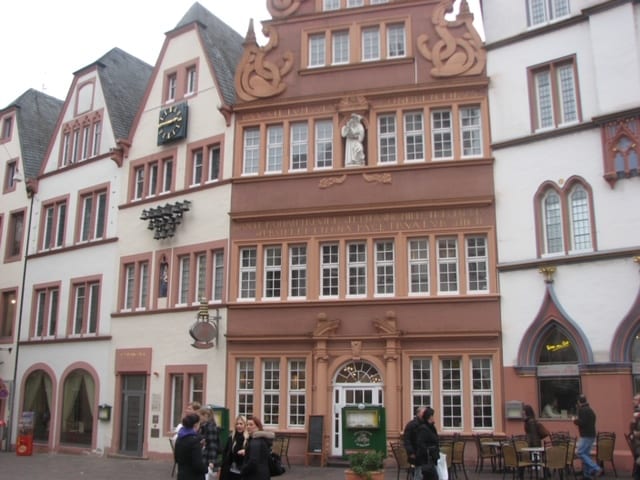
Porta Nigra
Porta Nigra is a large Roman city gate that was built after 170 AD and was used as the town entrance until the end of the Roman era in Trier. This gate was one of four constructed, but it is the only one that remains. The original name of the Roman gate is unknown. It was named Porta Nigra in the middle ages because of its darkened color of the stone.
Aula Palatina
Aula Palatina, which is also called the Basilica of Constantine, is a Roman palace constructed at the beginning of the 4th century AD. In 1944, the building burned as part of an air raid during World War II but was repaired after the war.
Electoral Palace
The Electoral Palace was home to Archbishops and Electors during 1500s – 1700s. The palace now houses federal government offices.
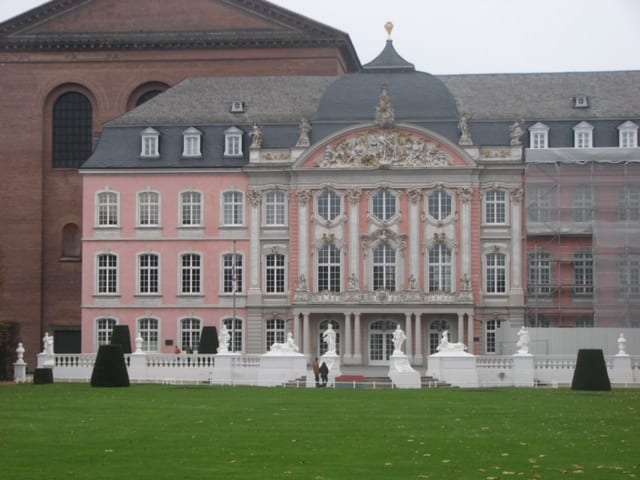
Trier Cathedral
Trier Cathedral is the oldest church in Germany and is listed as a UNESCO World Heritage Site. The church was commissioned by Emperor Constantine the Great after his conversion to Christianity.
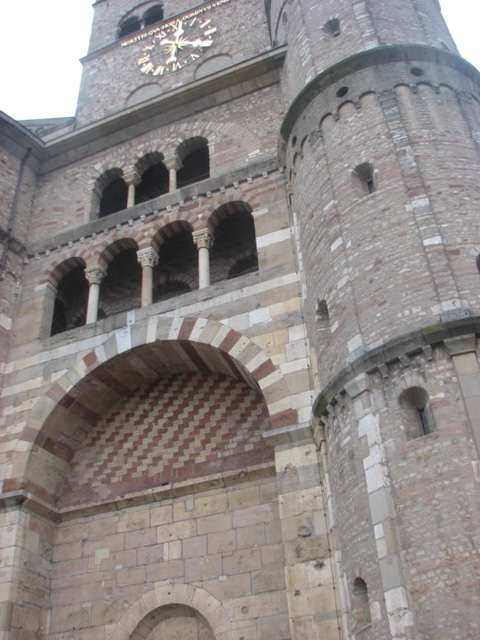
Liebfravenkirche
Liebfravenkirche is the oldest Gothic church in Germany and is located next to the Trier Cathedral. This church was built from 1227-1243 according to a painted inscription on a church column, but these dates cannot be verified.
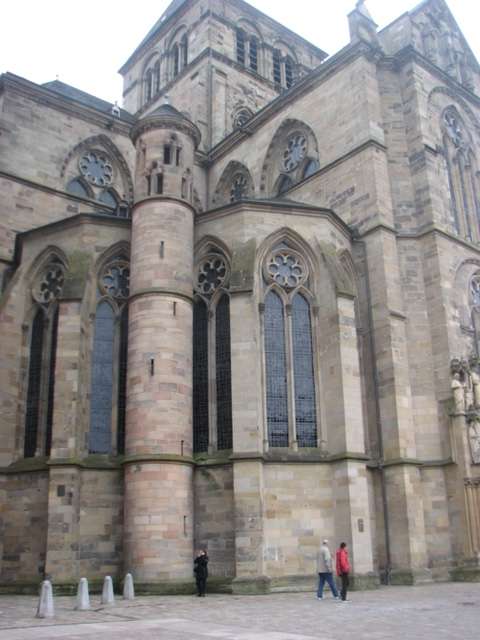
Karl Marx House
Trier is the birth city of the German philosopher and founder of Marxism, Karl Marx. The house of the father of modern socialism and communism is a museum you can tour while visiting this medieval German town.
Trier Imperial Baths
The Trier Imperial Baths are ruins from a large Roman bath complex constructed in the 4th century AD.
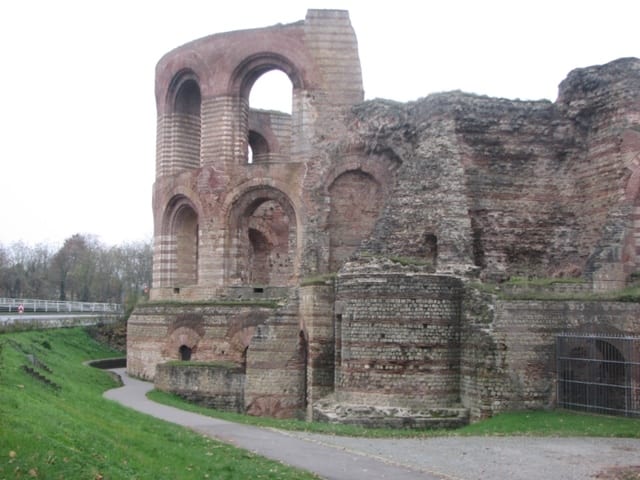
Hauptmarkt
The Trier Hauptmarkt is a market square surrounded by colorful buildings. The market is usually filled with fruit stands, flowers, and fountains. While we were visiting, though, they were setting up for the Christmas market.
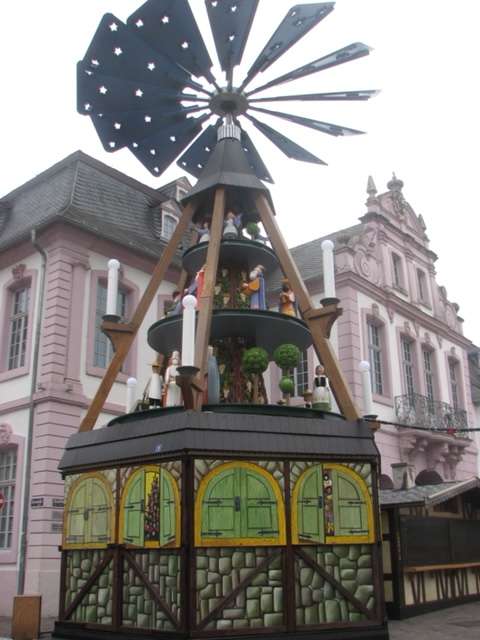
Heidelberg
Heidelberg is a town in southwest Germany located on the Neckar River and is also home to Heidelberg University, Germany’s oldest university (1386). This medieval German town can trace its beginnings to 5th century AD.
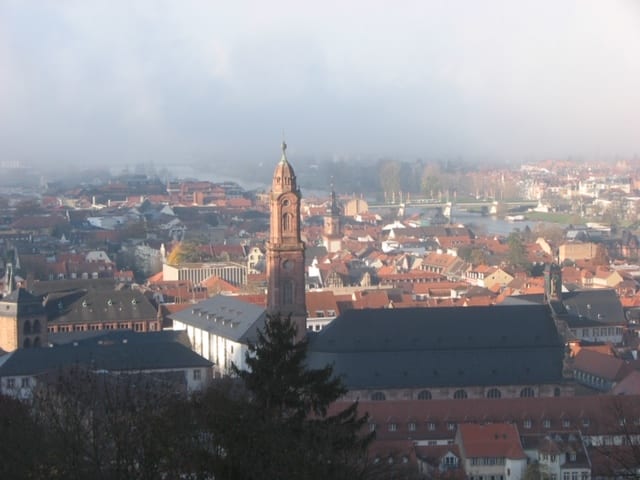
Schloss Heidelberg
Heidelberg Castle dates to the Renaissance era and is a landmark of Heidelberg. The castle is now ruins that you can explore on the Konigstuhl hillside and offers amazing views of the city center. We accessed the castle ruins via the Heidelberger Bergbahnen, a funicular railway that runs from the Kornmarkt.
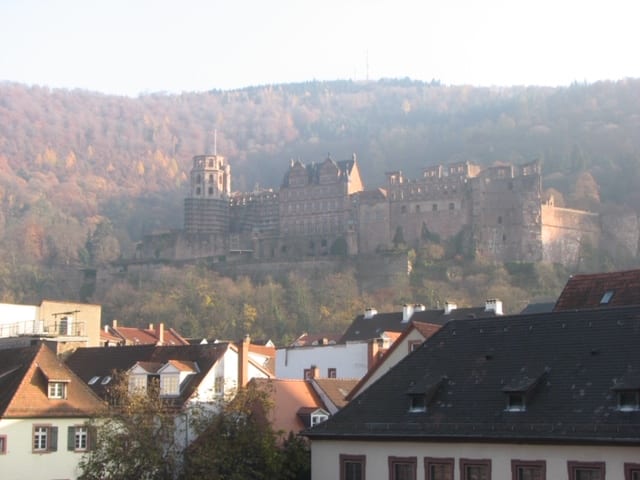
Heidelberg Tun
The Heidelberg Tun is a massive wine barrel located in the cellars of Heidelberg castle. The wine barrel sits empty and is only used as a tourist attraction. One hundred and thirty oak trees were used to make this large vat.
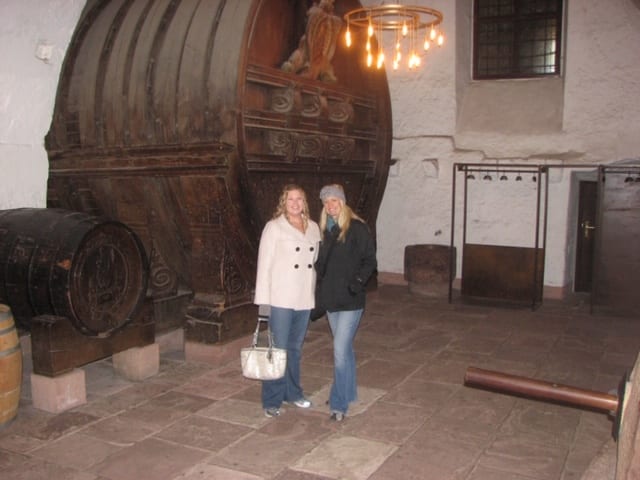
Altstadt “Old Town” Main Street
The Main Street of “old town” is a mile-long street lined with shops and restaurants. This street runs the length of the old town.
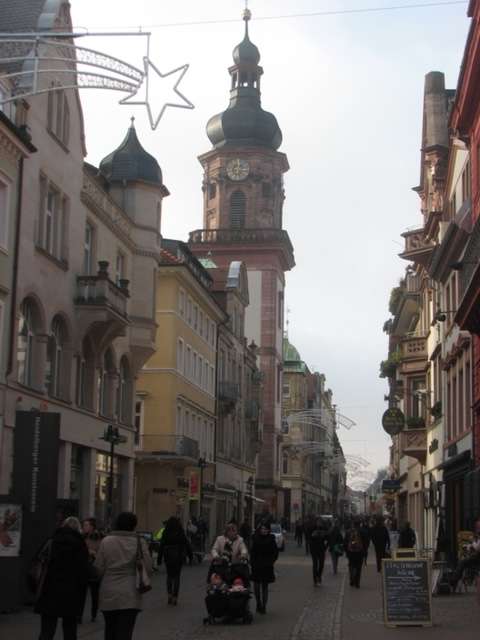
Old Bridge
The Old Bridge, officially called the Karl Theodor Bridge, is an arch bridge that cross the Neckar river connecting the banks.
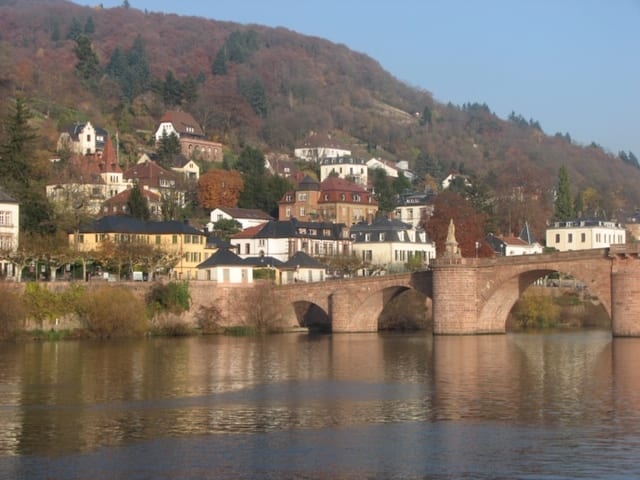
Church of the Holy Spirit
Located in the marketplace of this medieval German town is the most famous church in Heidelberg, Church of the Holy Spirit. The steeple of the church rises far above the rooftops of the old town.
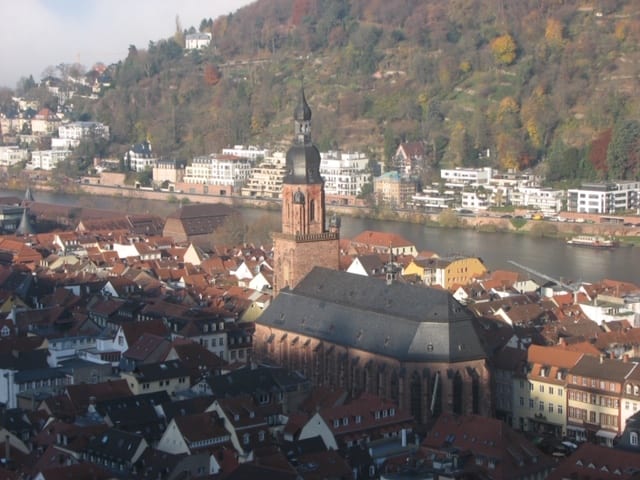
Rothenburg ob der Tauber
Of the three medieval German towns we visited, Rothenburg was my favorite. The entire town is surrounded by stone walls, and it felt as though we were visiting a fairytale land. Plus, you can shop year-round for Christmas decorations. Yes, please!
Town Wall
Spend 2-3 hours walking the fortified stone walls that protected the trading town during the middle ages. See the Marcus Tower and Arch, Roder Tower and Gate, Rotten Tower Stroll and more along the way.
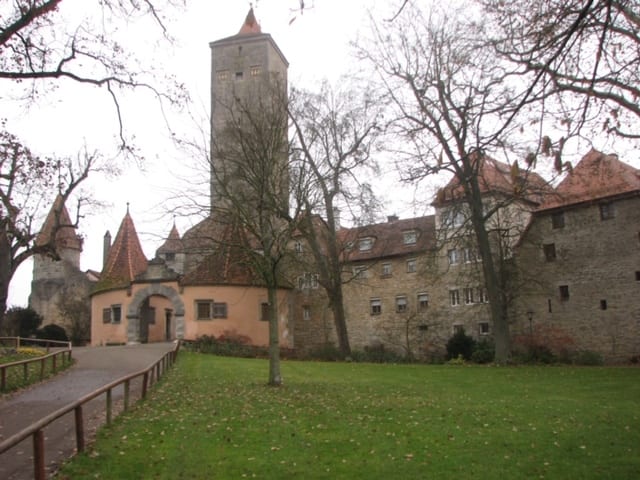
Night Watchman Tour
Learn about Rothenburg history by taking a Night Watchmen Tour that starts at the market square in front of town hall. The tour guide entertains the crowd with his tales of the town while dressed in period costume and carrying a battle axe.
Plonlein
Plonlein is the most iconic image of Rothenburg where two street converge with colorful traditional Germany buildings line the streets. Of course, I did not get a picture of one of the most recognized photo opportunities in Germany. I guess I will just have to go back!
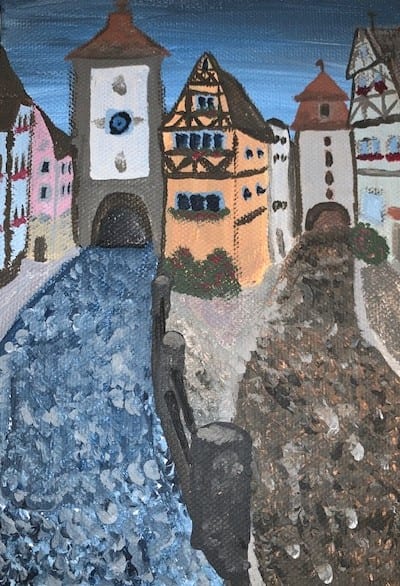
St. James Church
St. James Church is a historic Lutheran church that was built between 1311-1484. Inside the church is a great organ with 5,500 pipes.
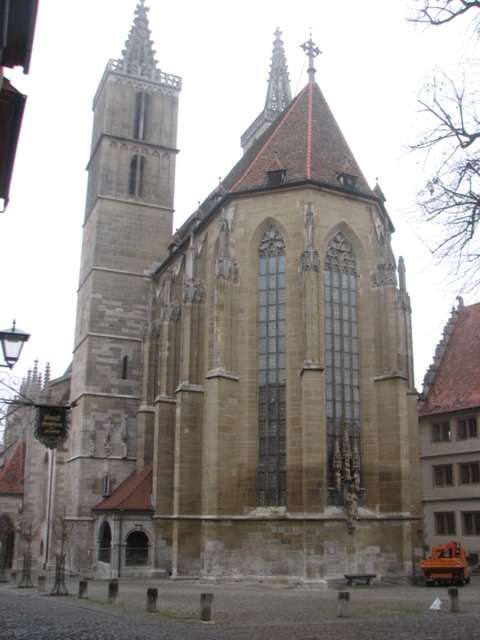
Kathe Wohlfahrt
Be prepared to be overwhelmed by Christmas no matter what time of year you visit. Kathe Wohlfahrt is located just off the market square and has the largest selection of German Christmas decorations in the world.
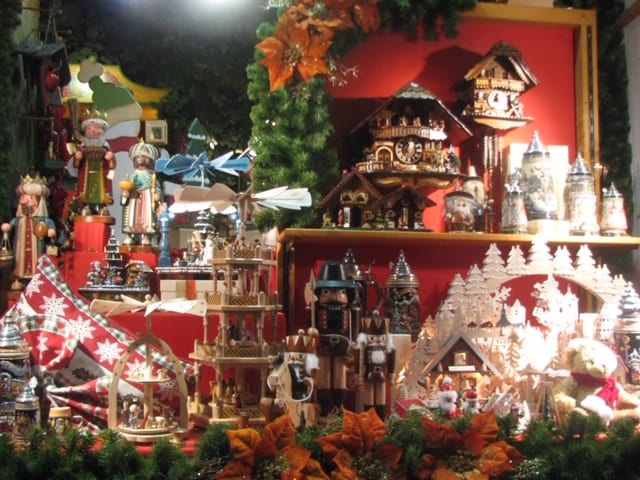
If you love visiting these medieval German towns, you may also love traveling to Croatia.
